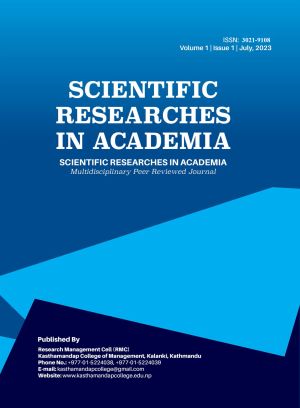Status and Provision of Personal Permanent Account Number (P-PAN) Withholdees in Nepal
DOI:
https://doi.org/10.3126/sra.v1i1.60139Keywords:
Income Tax, IRD, P-PAN, Tax Literacy, Tax System, WithholdeeAbstract
The research highlights the fossil print of the income tax system into the modern concept of a permanent tax system. The tax was initially introduced to fulfil the economic need of the state for war and the like. Later on, this became the permanent source of income for the sustainability of the government. Nepal had gone through various reforms in the tax system. Recently, the Government of Nepal made personal PAN cards mandatory from the fiscal year 2019/2020. This study highlights the consequences and impacts of such rule implementation. Onward, it would help to formulate the prerequisites for implementation and help to design policy. Additionally, it advocates for tax literacy among citizens, equal respect for the public and transparency of services provided to the public. This is a mixed type of research and thus deals with both quantitative and qualitative data. Most of the data collected from the government record so-called secondary data and are well cited. This study is interpretive. It was found that 71% had felt an extra burden about taking P-PAN forcefully. IRD should play a vital role in the optimum level of tax collection by bringing new policies, a healthy tax system and making literate on the tax system to the citizens. Also, IRD needs to educate well to the citizens about the benefit of tax paying. Arguably, the study enhanced to create tax awareness and support for healthy tax system practice.




